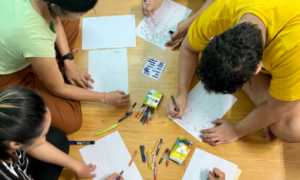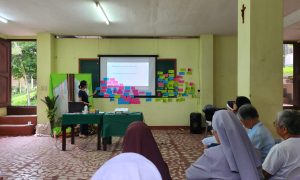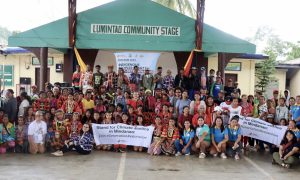 Digital archiving is essential to the protection and preservation of Lumad schools’ documentary materials amid cultural erosion.
Digital archiving is essential to the protection and preservation of Lumad schools’ documentary materials amid cultural erosion.
As part of its “Lumad School Memory Project,” Mindanao Climate Justice Resource Facility, Inc. (MCJ) conducted a digital archiving training online with archivist Adrian Mendizabal on June 7, 2023.
Mendizabal is an archives researcher and collections manager at the University of the Philippines Film Institute (UPFI) Archives and the Polytechnic University of the Philippines’ (PUP) “PH Docu Heritage: Archival Collection on the COVID-19 Pandemic.”
In his discussion, Mendizabal focused on the societal importance of archives and their implications on peoples’ movements. Citing the United Nation’s Universal Declaration on Archives published in 2011, he underscored the necessity of using archives to ensure accountability and transparency. He also discussed how archives can be utilized by communities to build collective memories and to serve as guide for future actions.
According to Mendizabal, a common misconception on archiving is equating digitization with preservation. The fast-paced digital evolution in recent decades has prompted archivists to struggle to keep up with technology, he added. In this context, the role of community archiving such as the Lumad School Memory Project, which democratizes archival work, is paramount.
Said project is an archiving and research initiative aiming to build physical and digital archives on indigenous peoples’ (IP) communities in Mindanao, their rich cultural heritage, and their educational practices. The project prioritizes the protection and preservation of the documentary materials of forcibly closed Lumad schools. These materials are now scattered in different parts of Mindanao due to the heavy militarization of Lumad communities.
Mendizabal stressed that a digital archive of IP school materials must be able to engage not only with its owners and custodians, but also with the public. The training ended with a discussion on how the Lumad School Memory Project can benefit from an archiving framework and IP protocols to protect the rights of the Lumad communities once their materials are made available online.



